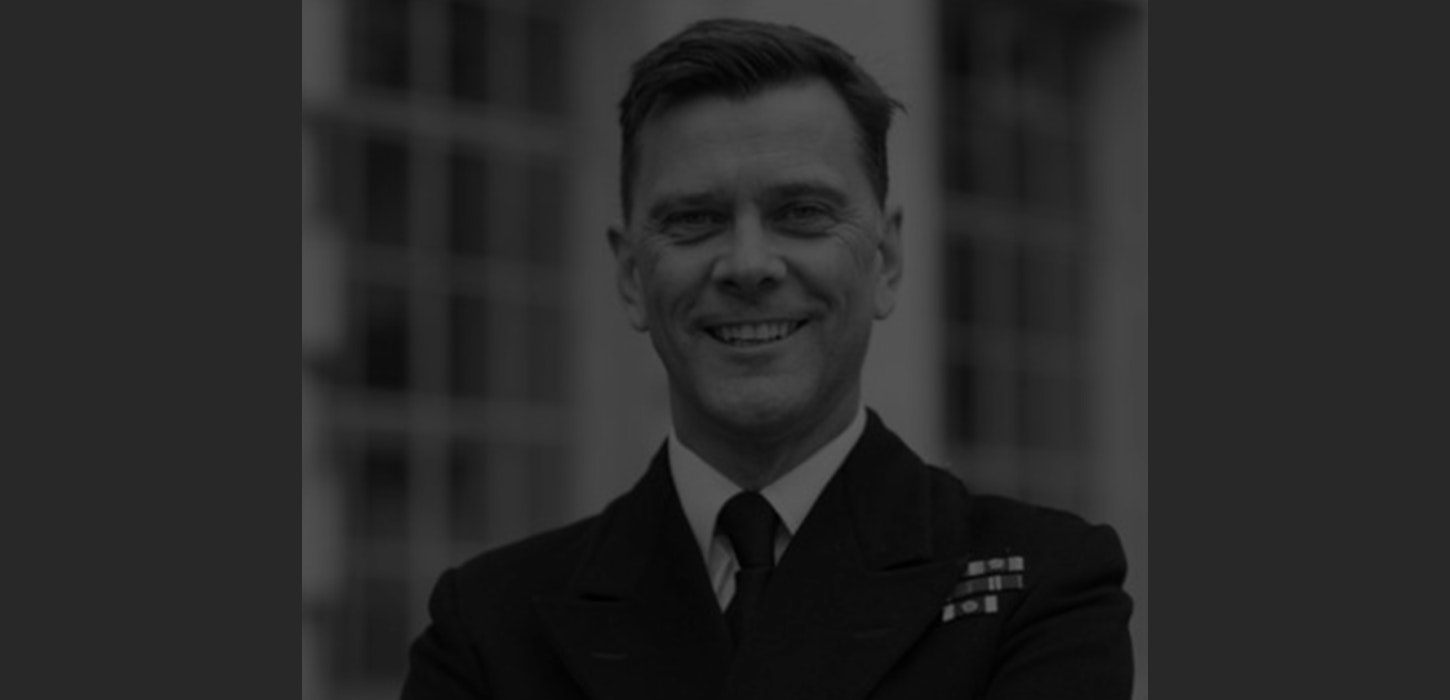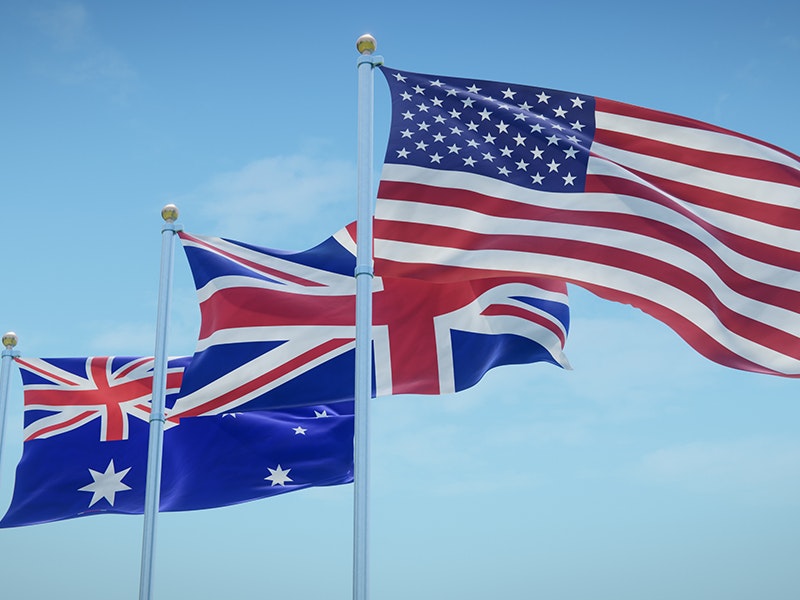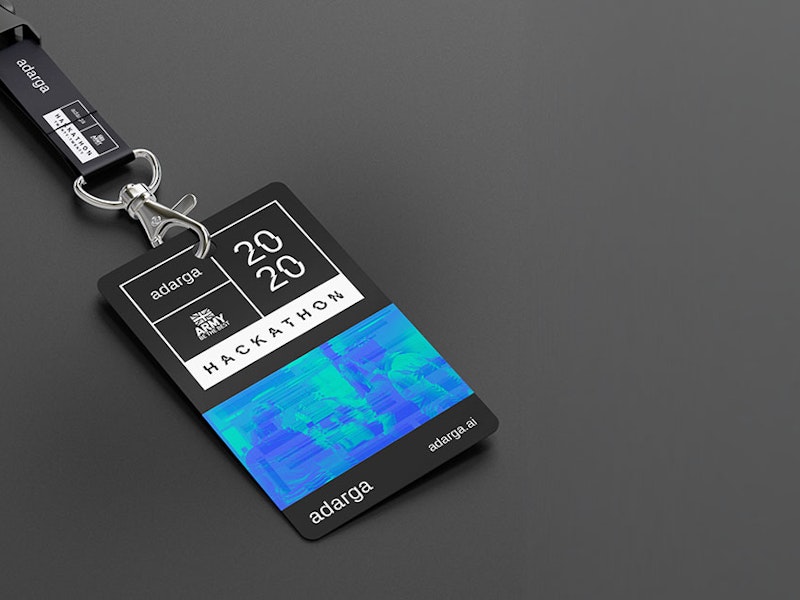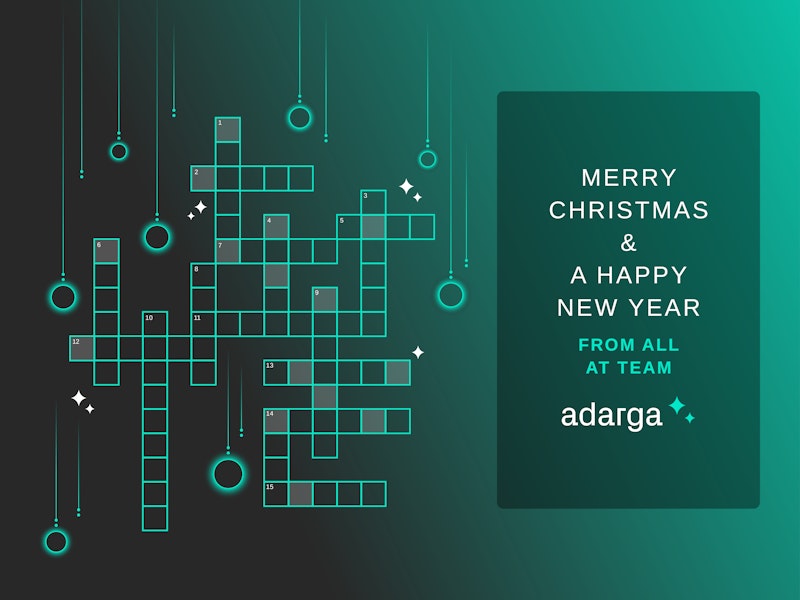
What the Chief of Defence Logistics and Support really thinks about AI
We find out, after his six-week secondment at Adarga.
Introducing Rear Admiral Andy Kyte
In September, Rear Admiral Andy Kyte took on a range of globally significant responsibilities. As Chief of Defence Logistics and Support, he is the senior logistician in Defence – right across all domains. He is responsible for scoping requirements, setting the operational model, and managing risk. He has ultimate oversight of the products, the procurements, the people, and the processes that will determine how our forces perform in peacetime and in conflict. Importantly, driving the digitisation of defence is a primary area of focus. “Everything I do”, he says, “must improve support to the front line”.
Industry Secondments: a vital bridge connecting defence with the force of SMEs
Andy has 36 years’ experience in the Royal Navy. For the last 15 years, he’s worked exclusively in logistics. Since October 2022, ahead of starting his new role, he’s been on continuous secondment to industry to deepen his practical knowledge and further refine his skills. He’s been critically focused on innovative solutions and approaches that will be essential to the modernisation of the military. His secondments have ranged far and wide – from global corporates such as Rio Tinto to small disruptive software start-ups developing game-changing technologies. Start-ups whose speed, agility, and rapid response to fast-evolving commercial market demands are qualities that Andy perceives as essential to galvanise battlefield advantage for our forces.
His secondments culminated in six weeks at Adarga, learning about why our AI-driven information intelligence product is so significant to defence. It was a six-week immersion in our technology and its capabilities, and our approach to development. A chance to understand the fundamental philosophy that underpins our approach to the application of AI. A hands-on experience of the rapid, secure, start-to-finish processes involved in taking AI software from research to product, and then to the market. An introduction to the careful blend of highly-skilled professionals required to make all this happen – what their training is, where they come from, and what their individual expectations are. An opportunity to absorb our view on the challenges to adoption and the solutions to those challenges.
Why did Andy choose to join Adarga?
We asked Andy how his experience amplified what he already knew, and how it had refined and developed his thinking. He regards data – its richness, depth and accuracy and the ability to interrogate and understand it – as critical to modernisation and decision-making, and that brings with it a set of key process, cultural and operational considerations. Data - its utility, its ability to deliver front line and back-office advantage when effectively and rapidly collected, processed, and interrogated by analysts with finely honed critical thinking skills – is, of course, the absolute focus of our business.
AI – don’t just use it “because it’s there”
The preliminary requirement for digitising defence, he says, is infrastructure. Without it, digital modernisation is impossible, and exploitation of AI is even more impossible. He also holds one clear tenet about the network infrastructure needed to exploit AI – “own as little as possible” whist clearly understanding your dependencies on others for this key capability. Next – work backwards. Rather than getting hold of some shiny AI and then trying to work out how to use it, start with your user’s problem and their AI and data needs. A genuine user need, a genuine problem. If you think it might benefit from AI input, try it. Only use it if it actually demonstrates a purpose in fulfilling the requirement.
The importance of defining users’ requirements
It’s essential too, Andy says, to be very clear about the requirements. You want something that’s “better”: what does better mean in the defence context? What are the performance characteristics you value? For example, speed, assurance, quality of analysis, or security? What, exactly? He counsels on the importance of managing users’ expectations and – complementary to that in many respects – understanding how critical it is to create a straightforward, user-friendly experience. Technologies that are too complex to use are technologies that are abandoned.
Andy says there are clear lessons learned from the way Adarga approaches its work: creating Minimum Viable Products (MVPs) fast, iterating frequently, and adopting low-risk AI first. The risk calculus is one of which he’s acutely aware. Defence’s processes and prevailing culture are not optimised for the speed at which more technically agile adversaries move.
A component essential for increasing the military’s agility, he says, (and something his time at Adarga has firmly crystallised) is a programme of continuous applied research. Research that constantly absorbs, understands, and exploits developments in the wider world of AI and creates entirely new approaches to solve customers’ problems.
The urgent need for cultural change
“Fail fast” is an article of faith in the start-up world. It’s a commercial imperative. More caustic commentators might observe that the apparent article of faith underpinning some military projects is “fail slow”. This points to the need for cultural change, and this is an absolute priority for Andy.
Andy sees culture change as both behavioural and practical. Behavioural because of the need to promote a willingness to engage, to drive an active desire for change, and to build trust in technology and processes. Practical because of the need to improve skills, to create a body of “digital professionals” who can define user requirements far more specifically than historic practice, and who can then build and road-test new solutions.
What it boils down to is a need to completely re-think old inflexible attitudes and systems, and to re-think procurement cycles, which are too slow-moving and cumbersome to meet or match today’s demands.
Why the military must partner with SMEs
Part of that culture change, according to Andy, must be an embrace of partnerships with commercial providers and their ecosystems. The connection of complementary commercially available tools to deliver “integration by design”. The creation of mature, flexible relationships with SMEs to deliver the best, most up-to-date solutions, at speed.
Finally, returning to the topic of data that inspired this secondment in the first place. Andy has always been intently focused on, and a great believer in, the power of data and the necessity of using it wisely and creatively. For him, it’s now all about implementing the technology that will maximise its value both administratively and on the front line. About maximising the amount of data available (both internal and external). About optimising the capacity to integrate all sources and all forces, and to process it intelligently, at speed, and in depth. This is central to everything he’s planning. This critical capability is one that lies at the very heart of Adarga’s mission.
Any secondment is a two-way street. For Adarga, Andy’s input provided us with critical further insight into what the military will want, how it expects to work in the future, what impacts these factors may have on product developments, and how we need to calibrate our roadmaps to meet demand.
It also re-emphasised the value of having external industry experts coming inhouse. Development work is highly focused and demands acute attention to close detail. Collecting the maximum amount of input, from the most diverse sources, is essential to growth, and Andy has contributed greatly to our collective knowledge – whether in design, delivery, or procurement practice. We’d like to thank Andy for all his interest, all his enthusiasm, and all the questions he asked that were really insightful and made us pause for thought.
And the single most important piece of learning?
One parting remark Andy made seems to encapsulate both the problem and the solution. “The military world is unique. But when it comes to technology, we must stop regarding ourselves as 'special'. We don’t need special time - and resource - heavy bespoke solutions with built-in obsolescence. We need solutions”.
Sign up for the Adarga Newsletter and keep up-to-speed on the latest AI developments across defence, national security and the wider industry.
Download the Adarga Vantage brochure to understand how our AI-driven information intelligence tool is delivering decision-advantage for defence, public and commercial sector organisations.









